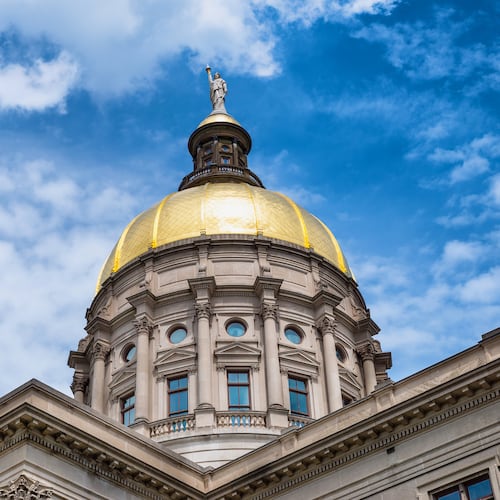Gov. Brian Kemp said he was worried about potential costs when he vetoed a bill that would have allowed health savings accounts for Georgia government employees.
But there wouldn’t have been many costs, and there might have been big savings.
The veto prevents 482,000 state employees, teachers and their beneficiaries who are covered by the State Health Benefit Plan from being able to save pre-tax money for health expenses, just like in the private sector.
Georgia’s government could have benefited financially as well by avoiding the 7.65% federal payroll tax on that pre-tax money that employers usually owe to help fund Social Security and Medicare.
The amount of state savings is unclear because they weren’t thoroughly analyzed before the General Assembly approved the bill — the main reason Kemp vetoed it.
However, if enough employees enrolled in health savings accounts, the state could have kept millions of dollars over the years that otherwise would have gone to the federal government.
The Republican governor vetoed the Democratic-sponsored legislation, Senate Bill 199, after it had passed on near-unanimous votes in the General Assembly.
“I don’t know whether it’s the fact that I’m a Democrat, or the fact that he was vetoing a number of bills that had small fiscal impact in order to send a message to the Legislature,” said state Sen. Jason Esteves, the Democrat from Atlanta who introduced the bill. “It would have actually saved the state money. That is without a doubt.”
Credit: Arvin Temkar/AJC
Credit: Arvin Temkar/AJC
Kemp killed the bill and issued several other line-item vetoes and spending directives amounting to $230 million from the state’s $32.4 billion budget as tax collections have slowed and concerns about the economy are on the rise.
“HSA benefits may be a valuable benefit to state employees; however, the fiscal impact of these changes is unknown,” Kemp wrote in his veto message earlier this month. “Adding these programs without a full understanding of the fiscal impact risks significant financial harm to the state and to affected employees.”
Startup costs and initial implementation would have amounted to an estimated $250,000 to $300,000, Esteves said. Ongoing costs would have been minimal, in part because health savings accounts would be administered by the state’s insurance companies as part of their health plans.
Employers — in this case, the state of Georgia — also profit from HSAs because they require high-deductible health insurance plans, which shift more costs to the employee.
The bill didn’t include any financial projections, fiscal notes or budgeted costs. It also didn’t require any state government contributions to state employee HSAs.
It’s possible that startup costs could have exceeded savings to the state in the first year if few people signed up and contributed to their health savings accounts.
Roy Ramthun, a consultant in the HSA industry who led the U.S. Treasury Department’s implementation of HSAs after they became law in 2003, said savings to Georgia would likely outweigh costs.
“It was just weird to me to see the governor’s veto message,” Ramthun said. “Why didn’t anybody do that (fiscal analysis) before the legislation was sent to his desk?”
Kemp’s spokesman Garrison Douglas said the governor is being cautious about spending taxpayer money for new programs without fully understanding their financial implications.
The proposal will be revived and revetted when the General Assembly returns to the Capitol next year, Esteves said.
About the Author
Keep Reading
The Latest
Featured




